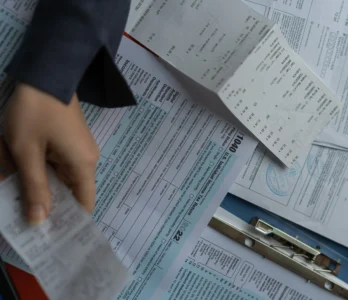Zelle fraud isn’t uncommon—the company has even faced a senate probe for unacceptably high fraud rates. According to John Breyault, the Vice President of the National Consumers League, the losses due to Zelle scams are likely to exceed one billion dollars in 2025.
If you’re one of the many Zelle users scammed on the platform, this article will discuss how to report Zelle fraud. We’ll explain what information you need to provide to report Zelle fraud and under what conditions you may get your money back.
What Are the Steps To Report Zelle Fraud?
To report Zelle fraud, contact the company at 844-428-8542 or fill out the report form online. You’ll need to provide some or all of the following information:
- Your name, email address, and phone number
- The recipient’s name, email address, and contact method
- Who the recipient claimed to be or what website they used
- Payment information—transaction date, amount, and payment ID
- A short description of the scam
If you’re enrolled in Zelle through your bank or credit union, you should also report the fraud directly to these institutions. You also want to contact the main three credit bureaus and freeze your credit for extra protection:
- Equifax—1-800-685-1111
- Experian—1-888-397-3742
- TransUnion—1-888-909-8872
Additionally, consider reporting the scam to the following agencies:
| Organization | Details |
| FBI Internet Crime Complaint Center (IC3) | File a complaint on the IC3 website |
| Your phone provider | If you received a text message initiating the fraud, copy the content into a new text and send it to 7726 (SPAM) |
| Federal Trade Commission (FTC) | Report fraud by visiting ReportFraud.ftc.gov or dialing 1-877-FTC-HELP |
| Local law enforcement | Find your city law enforcement’s non-emergency helpline (not 911) and ask for their fraud department |
Can You Get Your Money Back if You Report Zelle Fraud?
Yes, fraudulent transactions on Zelle can be refunded. However, Zelle has a specific definition of fraudulent transactions that doesn’t cover many scams.
For a transaction to be considered fraudulent according to Zelle’s policy, it must be:
- An unauthorized transfer—This means somebody stole your phone or accessed your Zelle account without your permission. You mustn’t be involved in the transaction or have authorized it in any way
- An incorrect electronic transfer—This means you mistyped the email address or phone number of the person you intended to send money to
- A miscalculation or error—For example, you meant to send $100, but an error on Zelle’s part resulted in $1,000 being sent
If any of the above circumstances apply to you, contact your financial institution and ask for a refund under the Regulation E dispute.
However, if you authorized the payment or sent money of your own accord, you may not be able to get your money back. This applies even if you were tricked or persuaded into paying the scammer for goods or services they promised to provide. The Electronic Transfer Act doesn’t cover such scams, so banks and financial institutions don’t need to reimburse you.
Does Zelle Offer Refunds for Imposter Scams?
Yes, you may be able to get your money back if you’ve fallen victim to an imposter scam on Zelle.
The 2023 Zelle policy update now requires banks and credit institutions linked with Zelle to refund customers for money lost through imposter scams.
This applies only if the scammer impersonated a bank or a government official to trick you into sending money. Other types of scams aren’t eligible for a refund.
Does Zelle Provide Fraud Protection?

No, Zelle doesn’t have fraud protection programs. However, you can protect yourself against Zelle fraud by taking these steps:
- Create strong and unique passwords for your Zelle and bank accounts
- Enable your phone’s biometric security options, such as facial recognition and auto-lock
- Set up multi-factor authentication on your Zelle account—use an authentication app rather than SMS verification
- Set up alerts and transaction notifications via text or email to monitor for suspicious activity
- Don’t share any personal information or account passwords over text or phone
- Only use Zelle for peer-to-peer transfers to individuals you know and trust
If your Zelle account has been compromised, the fraudsters may be able to drain your checking account. To prevent that, consider moving most of your savings to a high-security bank account—like FortKnox by Austin Capital Bank.
FortKnox disables transfers to payment platforms like Zelle, Venmo, Cash App, Google Pay, and Apple Pay, protecting your funds against all online payment scams.





